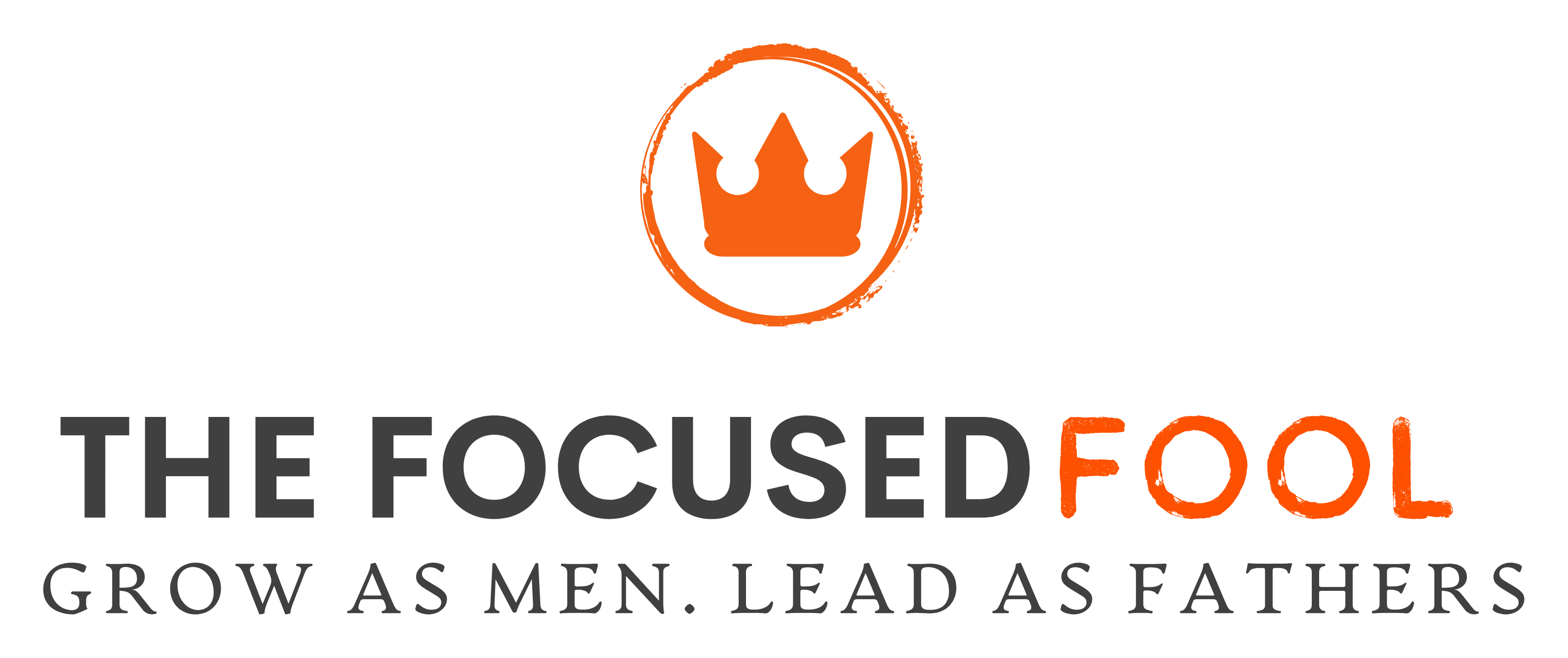The myth of flawless leadership, and how to be deeply impactful by being real
The Cape Doesn’t Fit
Picture this: your 13-year-old daughter comes home from soccer camp in tears. Some girls excluded her during free time. She’s tired, hungry, and spiraling. You’ve been reading about emotional intelligence and active listening, so instead of launching into your usual “Dad speech” about how those girls don’t matter anyway, you decide to try a different approach.
“When your friends were excluding you, how did it make you feel?” you ask, channeling your inner therapist.
She stops mid-sob, looks at you like you’ve just sprouted a second head, blinks twice, and then goes right back to crying.
That’s when it hits you: techniques fail when they feel like a costume.
Maybe you’ve been there too. You wake up early, try to meditate (or at least think about meditating), regulate your emotions like a Zen master, and attempt to lead your family with the wisdom of some parenting podcast you half-listened to during your commute. You’ve even Googled “best leadership traits for fathers” right after yelling about a sock on the stairs.
After 19 years of marriage and four kids, here’s the truth: our children don’t need flawless. They need real, accessible, emotionally present.
What if the very myth of the “strong, stoic, always-wise dad” is actually the thing getting in the way of the connection we’re desperately trying to build?
The Hero Illusion: Where We Get It Wrong
Somewhere along the way, we got sold a bill of goods about what good fathers look like. Movies, media, and even well-meaning parenting books present us with two options: be the heroic dad who always knows what to say and never loses his cool, or be the bumbling fool who can’t find his keys and accidentally ruins everything. There’s rarely a third option that looks like, well, us—humans trying our best and occasionally messing up.
This internal pressure to lead perfectly often comes from a good place. We don’t want to repeat our own fathers’ mistakes. We want to be the dad we needed when we were kids. We’re terrified of failing them or not being enough.
Even Iron Man melted down. And he had a billion-dollar suit.
Kids don’t connect to marble statues. They connect to stories with cracks and courage. When we try to be the perfect father, we create distance instead of intimacy. We become someone they admire from afar rather than someone they can relate to and learn from up close.
Cracks That Connect: Why Humanity Wins
Last month, I snapped at my 6-year-old for not getting ready to leave while he was playing. I was stressed about a work meeting, running late, and instead of managing my own emotions, I let them spill over onto him. The look on his face—those wide, shocked eyes asking “Why is Dad yelling?”—stopped me cold.
I could have doubled down, barked “We need to leave now,” or pretended nothing happened. Instead, I got down to his level and said, “Buddy, Daddy was wrong to yell at you. I was feeling stressed about work and didn’t want to be late, but that was no reason to raise my voice. I’m sorry.”
You know what he did? He wrapped his little arms around my neck and gave me the biggest hug.
That moment taught me something profound: being human invites connection, while being “perfect” creates distance. My son didn’t learn emotional regulation from watching me never get frustrated. He learned it from watching me recognize when I’d messed up, take responsibility, and repair the relationship.
Your child doesn’t need a parent who never fails. They need one who fails, learns, and tries again. That’s where the real teaching happens—not in our perfect moments, but in how we handle our imperfect ones.
Presence over perfection.
Repair beats performance.
Authenticity breeds trust.
Three Ways to Be Human, Not a Statue
A. Let Them See You Fail (and Recover)
The other day I locked my keys in the car, again. Instead of pretending it didn’t happen or getting frustrated, I narrated my way through it: “Well, I did it again. Locked the keys right in there. Deep breath. No big deal. We’ll call Mom and figure it out.”
My 8-year-old watched this mini-drama unfold and said, “Dad, you do that a lot.” Thanks, buddy. He also saw me stay calm and solve a simple mistake.
Action: Narrate your small failures out loud. Show them that mistakes are normal and manageable, not catastrophic.
Prompt: What’s one failure this week I could turn into a teachable moment instead of trying to hide it?
B. Share the ‘Why’—Not Just the Rule
I recently asked my boys about our house rules. My 8-year-old knew exactly why we don’t eat in the downstairs living room: “Because crumbs could attract mice.” Smart kid. But when I asked my 6-year-old about our “no swear words” rule, he just shrugged and said, “Because they’re bad?”
That was a wake-up call. My wife and I realized we’d explained the mouse situation but never helped him understand that some words can hurt people’s feelings or aren’t respectful ways to communicate.
Action: Next time you enforce a boundary, take 30 seconds to explain the “why” behind it in terms they can understand.
Prompt: Do my kids know why I value honesty, kindness, or responsibility, or do they just know these are “the rules”?
C. Model Apologies, Not Just Authority
Real apologies are different from “I’m sorry you felt that way” non-apologies. They acknowledge what we did wrong, take responsibility, and commit to doing better. When I apologized to my 6-year-old for yelling, I didn’t just say “sorry.” I explained what I did wrong (yelled when I was stressed), why it was wrong (it wasn’t his fault I was having a hard day), and what I’d try to do differently next time.
Action: The next time you mess up—and you will—give a real apology that models accountability.
Prompt: When’s the last time I modeled a genuine apology to my child instead of just expecting them to move on?
When Being Human Feels Risky
I get it. Sometimes being vulnerable with our kids feels dangerous. “Will they respect me less if they see me struggle? Am I supposed to be their anchor, not their emotional mess?”
But here’s what I’m learning: respect doesn’t come from invulnerability. It comes from integrity. When we show our kids that we’re human beings who make mistakes, feel emotions, and work to do better, we’re not undermining our authority. We’re demonstrating what real leadership looks like.
You’re not off the hook from leading. You’re leading from eye level, not a pedestal. And honestly? The view is better down here.
My real fear isn’t losing their respect. It’s overthinking honesty. I want to be genuine without calculating it.
The Power of Being Watchable
Your kids are watching you. Not for perfection—they’ve already figured out you’re not perfect. They’re watching for patterns. How do you handle frustration? What do you do when you’re wrong? How do you treat people when you’re stressed? Do you practice what you preach?
Your mistakes, repairs, and daily stumbles shape them more than any speech. The way you apologize to your spouse after an argument. How you respond when the restaurant gets your order wrong. Whether you keep your word about small things. These moments are your real parenting curriculum.
You don’t have to be a hero. You just have to be a human trying—and brave enough to let them see that. Because when our kids watch us navigate life’s challenges with honesty, resilience, and grace, they’re learning how to do the same.
They’re not looking for a superhero. They’re looking for a guide who’s walked the path before them, knows where some of the potholes are, and isn’t afraid to say, “Yep, I fell in that one too.”
Quick Recap
The Hero Trap: Chasing perfection distances you from your kids.
The Human Approach: Vulnerability builds trust, connection, and modeling that sticks.
Try This Week: Share one failure out loud. Apologize when you screw up. Explain one rule with real context instead of just “because I said so.”
Want to be a real leader for your kids? Start with one human moment today.
Narrate a small mistake. Explain the why behind a rule. Offer a genuine apology.
Hit reply and tell me what happened. I’ll be over here, probably messing something up too.
Because that’s what we do. We try, we fail, we repair, we try again. And we let our kids see the whole process, messy as it is. That’s not just good parenting. That’s real leadership.
The Focused Fool Newsletter. Growing As Men. Leading As Fathers.


Leave a Reply